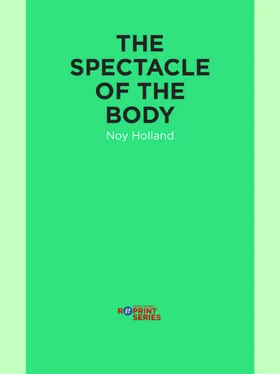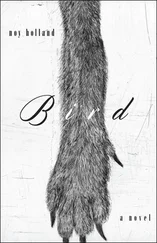There was a restlessness in me.
It is hard for me to explain it. The weeks passed, the days. Years pass. Years pass. There are houses. Favorite dogs have died.
I cannot explain it.
A redbird flies at the windowpane. A river turns tail on the sea.
The shadows made by the pin oak tree pooled on Mother’s bedsheets. She tried to kick them off, to sweep them off with the backs of her hands, to go out. She was always wanting to go out. When the last of the shadows had left the room, the sun had dropped over the sea.
That was when she would go out, when she had gone out — before then, before our father left. I had heard the bones of her hips crimped against the kitchen counter. She was peeling something, washing. Whatever it was, she put down. She went out.
She used to let us go out with her.
There were geese those years I know Mother loved, and the pelicans that followed the river. I know Mother loved the river.
We were walking with her on the levee one day. We were behind her. Her hands reached behind her to stop us. We were to go back. There was something she had left in the oven for us that we were to eat for dinner.
We listened for her. We left the porch light on. Orbit dropped marbles in n empty can he set inside the door of our room and, from the can, walked a string from our room down the hall to wrap around the knob of the door so that when she came back, we heard her.
There were times we did not hear her. We popped the screen from our window. The tree frogs had started to call. The call grew louder, quickened toward dark. Whippoorwills walked the road till dark, calling themselves out slowly.
Did you think we would follow, Mother?
We lay on our beds by the window, our pillows doubled beneath us, to see across the field. Our field was silted. Our potatoes were fists in the ground we tilled — held out, rooting.
We grew restless.
We sang.
A horse and a flea and three blind mice, sitting on a tombstone shooting dice. Horse jumped off, fell on the flea. Oops! said the flea. There’s a horse on me!
Boom boom. Boom boom.
We never followed her to the river. Our father was in his room. We kept having to remind ourselves that our father was in his room — that we should be quiet, that it would be dark before mother came back, because it was a ways to the river and back. We would fill a plate for her and leave it to warm in the oven for her so that she would eat some dinner.
And then this stopped also.
The fields were burning. It was the time of the year our father went out among the other fathers to burn the grass in the fields.
Our field was burning. We spelled one another at the windowsill. We could smell the grass still burning. The flames were brief, guttering birds.
We saw her.
She was growing old.
We saw the light of her cigarette drop at her feet from our window.
Then we did not see her. We did not think we could see her.
We called out. We did not think to call out. Ash rose to our mouths in the field.
I did not dawdle. Cissie says I dawdled there, but I did not dawdle. It is just a long way there. I came quick.
I did not have shoes. I did not have Bingo with me going there or coming back, and coming back I came by foot and I did not have shoes. I did not have Oscar, not my pail to bring him in and not my pail to rest on turned up, tired, by the road. And it is such a rough road. But I came quick. I came in my sock feet. I had swapped my shoes.
I swapped them at the tent. Also all my coins I had which I had not yet parted with — I swapped them at the tent.
My shoes,
my coins,
my lidded pail,
my fishy eggs,
my chicken necks,
my stone I kicked for luck from home,
my store list Cissie gave me—
lost, and worst of all is Oscar lost, and worse by far is Bingo lost, and also figure tadpoles lost, folded in the yellow leaves since I left through the field.
There is always Clem there. The Ferris wheel was broken. But there is always Clem there, and the turtle which swims in the tank.
The tent was flapping. I had on my shoes.
“First off,” the boy said, “you got to remove them shoes.”
I took out my coins I had.
I took off my shoes.
They smelled like Daddy. The ticket booth smelled like Daddy. Where I touched my shoes and the ticket booth, I smelled him on my hands.
I had smelled the roe, too, and the chicken necks when morning came, the morning I went to the fair. My pail was empty. I knelt on my skiff to paddle. I had to paddle with my hands. My hands were rotty. First I had the necks to lob and the bright eggs of the fish to lob where the lake is deep where the catfish swim, so that when I got to the shallows, when I got to the bank of the lake, I could haul my skiff up away from the lake and rinse it out with my empty pail and tip it up so if the rain should fall, the snakes would not swim in it.
The catfish had to swim up from the bottom.
I threw the eggs and the chicken necks as far away from my metal skiff as I could make them go. But I could still see the fish swimming, Even the eggs they swam for. The eggs were so small.
The snakes came and went for the eggs, but the snakes were small also. The fish were as big as dogs. I saw them swimming. I threw the fish eggs one by one, but once I threw a bunch at once so the fish would fight for them.
But I did not want to see the fish.
I did not want them bumping me.
I did not want to feel their whiskers pulling past my arms.
The boy was putting on my shoes. The boy was just a tall boy, stepped up taller in the ticket booth. He was not an older boy much by far than me. When he walked, my shoes made squeaking sounds like the sounds they made on me. My coins wore songs in his pockets.
I stepped up with the boy in the ticket booth. There was a mark on the wall of the booth that even tipped up on my toes I could not reach with my head.
“Uh-oh,” the boy said.
I was too small, he said.
I had seen my daddy — he had walked into the tent.
The men inside the tent were clapping. There was music when the clapping stopped. But I was still not tall enough. Even tipped up on my toes, I was not yea tall as that for the boy to let me in.
My hands were in my pockets. I could not make a run for the tent because my hands were in my pockets. I had to keep them in my pockets.
I listened for him. If I listened hard enough and if I stayed still long enough, I heard Oscar’s neck come out and sometimes, too, his feet came out and I would feel him walking on my legs between my pockets.
I had heard him, on the bank of the lake, in the weeds as soon as the sun came up. I had pulled my skiff up. I had my lidded pail. Oscar’s feet made slow scraping sounds when I put him in my pail.
The boy had a scar on his forehead.
I thought the boy had sisters.
I thought the boy had a stone to kick, or to keep with his hands in his pockets. But he did not have sisters. I gave him my store list Cissie wrote, since he did not have sisters. But he did not have pockets.
I thought all boys had pockets.
I thought all boys had sisters, girls to carve their names in trees and in the shells of turtles boys can carry by their pockets.
“How old did you say your sister was?”
How old do you think Oscar is? How old are you, Cissie?
I swapped my shoes, my lidded pail, my Oscar who I held up in my pants between my pockets. I swapped until the boy in the ticket booth promised to let me in.
It was dark almost inside the tent when I first went in. The stage was empty. The men inside stopped talking. I could not see them yet, coming into the dark from the bright outside, but they saw me. They said, “It’s Buhl’s boy. Why, Parson’s boy. Hey, Orbit.”
Читать дальше











